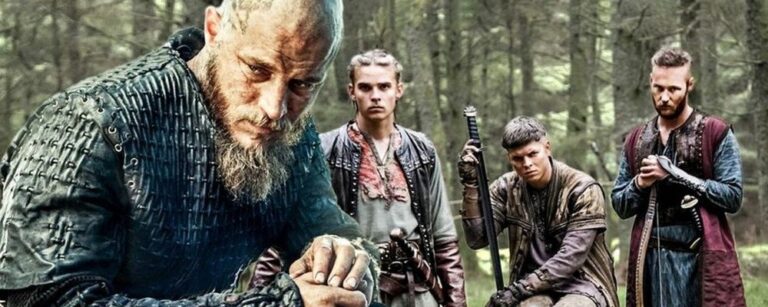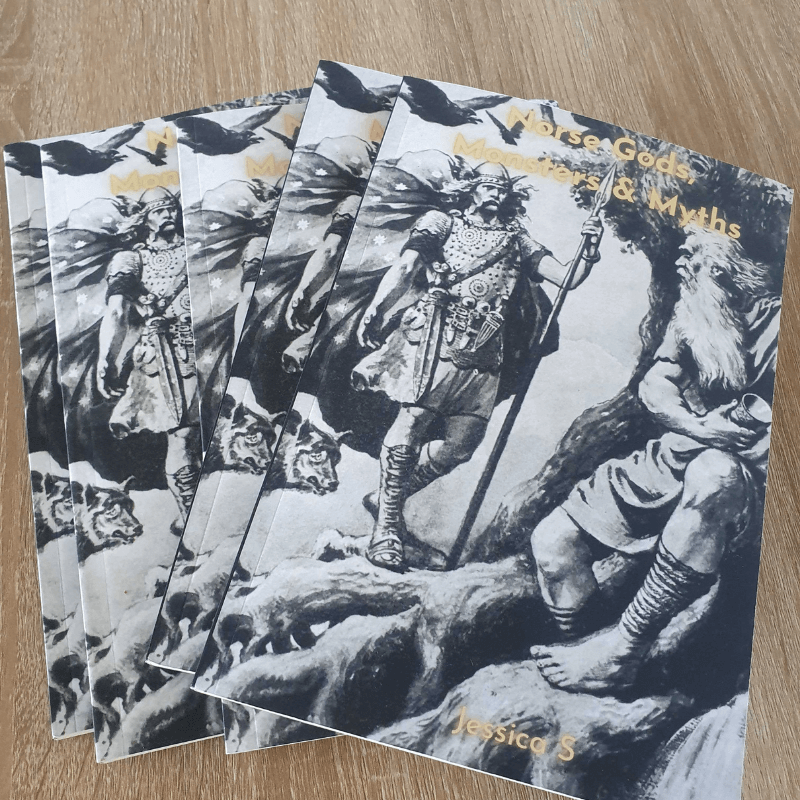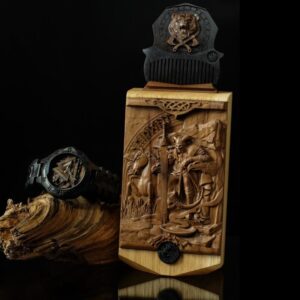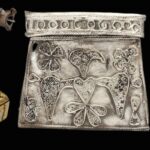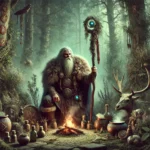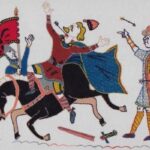Ragnar Lothbrok is the most famous Viking we know about today. But he was at least as famous for the vast number of warrior sons that he fathered as he was for his own exploits and deeds.
Ragnar seems to have had at least nine sons and two daughters, though different sources record different lineages for his various sons. This could lead us to believe that it was common for Vikings to sire armies of sons, but Ragnar is rare in this respect.
Sons of Vikings: The Sons of Ragnar Lothbrok

As a young man, Ragnar fought against the Swedish king Fro, with the assistance of the mighty and beautiful shieldmaiden Lagertha. The two married and had three children, a son called Fridleif and two daughters. But the two were on different paths in terms of conquest, and Ragnar left Lagertha.
Ragnar then married Thora Borgarhjort, the daughter of Jarl Herraud. Together they had at least two sons, Erik and Agnar. But Thora died not long into their marriage.
Ragnar later married a peasant woman of outstanding beauty called Kraka, who later turned out to be Aslaug, the daughter of the renowned hero Sigurd Fafnesbane, or at least this is what she told people. Together they had at least five children starting with Ivar the Boneless, Bjorn Ironside, Hvitserk, Ragnvald, and Sigurd Snake-in-the-Eye.
Ragnar may have married one more time or had an extramarital relationship, through which he fathered another son, Ubbe.
It is worth noting that Ragnar probably had more daughters, whose names are not recorded in the surviving sources. He probably also had several more sons who died in infancy.
The Demographics of Viking Fatherhood

The Viking world was a tough place to live and infant mortality rates were high. Researchers suggest that the typical Viking woman probably bore around seven children during her lifetime, each born roughly 30 months apart. Women breastfed their children until around the age of 2 years, which largely explains the regular period between pregnancies (as breastfeeding reduces fertility).
But many of the children born to Viking women would have died in infancy. It is suspected that a mother usually only had two or three living children at a time. Also, despite children marrying young, with boys tying the knot as young as 16 and girls as young as 12, it was relatively rare for individuals to live to become grandparents.
While divorces were relatively easy to obtain, the financial contracts that marriages represented meant that they were relatively rare. But if a couple did separate, or a man or woman was widowed, they would usually remarry quite quickly. So, while Ragnar might come across as a womanizer, his pattern of marriage was probably quite normal.
What is unusual is that so many of his sons survived into adulthood. But this is probably a reflection of Ragnar’s social status. He was the king of Denmark, and later Sweden as well. This meant that his children probably had better food and cleaner living conditions, which gave them a much better chance of surviving into adulthood.
In fact, having so many male adult children seems to have been problematic for Ragnar, as they would inevitably vie for power. This was probably the motivation behind Ragnar apparently expelling his sons with Aslaug from Denmark, with ships and a band of warriors, to make their own fortune elsewhere.
Exploits of the Viking Sons of Ragnar

But events would not unfold as Ragnar imagined.
It seems that Ragnar’s oldest son Fridleif stayed with his mother, which probably indicates that the boy was still an infant when the two separated. Ragnar seems to have decided to keep Erik and Agnar, his next oldest sons with Thora, in Denmark with him, and send the rest of his sons away.
They established themselves as a band of warriors, led by the oldest and most cunning Ivar. Together they conquered various territories including Zealand, Jutland, Gotland, and Oland.
While they were out making names for themselves, Erik and Agnar seem to have decided to do the same by trying to take Sweden from King Eysteinn Beli, whom Ragnar himself had appointed as his vassal.
Ragnar was pillaging in the Baltic and the brothers took the opportunity to approach Eysteinn, demanding that he become their vassal, and marry his daughter to Erik to ensure loyalty and transference of power. Eysteinn refused and attacked the pair, eventually killing both.
When their brothers heard about this, they attacked Eysteinn, killing him to avenge their brothers. Ragnar was actually disappointed by this. The sources suggest that he was growing jealous of the fame of his sons, but his motivations may have been strategic.
That Ragnar was not jealous of his sons may be reflected in the fact that after these events, Ragnar makes Ivar the governor of Jutland in Denmark, placing a lot of trust in his son. While in this role, Ragnar’s youngest son Ubbe is said to have hatched a plot to usurp his father. Not wanting to take sides, Ivar went into voluntary exile.
Rather than being angry, Ragnar seems to have respected this decision. When he decides to make a play for England with an inexplicably small force, he leaves Ivar in control of his kingdom.
Sons Revenge the Father

Again, the sources suggest that Ragnar was jealous of his sons and decided to invade England with a small army to prove that he was still a better warrior than them. While it does seem strange that there is no record of him taking any of his sons with him on this expedition, there is no other evidence to support this attitude.
When Ragnar was killed in England by King Aella of Northumbria, Ragnar’s sons immediately put together the Great Heathen Army to invade England and extract revenge, and also finish their father’s work.
Although there were many setbacks along the way, they would eventually capture and torture Aella, killing him using a technique known as the blood eagle. They would also take large parts of England and create solid Viking footholds in the country.

What Do You Think?
What do you think? Do you think that Ragnar was jealous of his sons, or do you think he considered himself lucky to be the father of so many great warriors?
